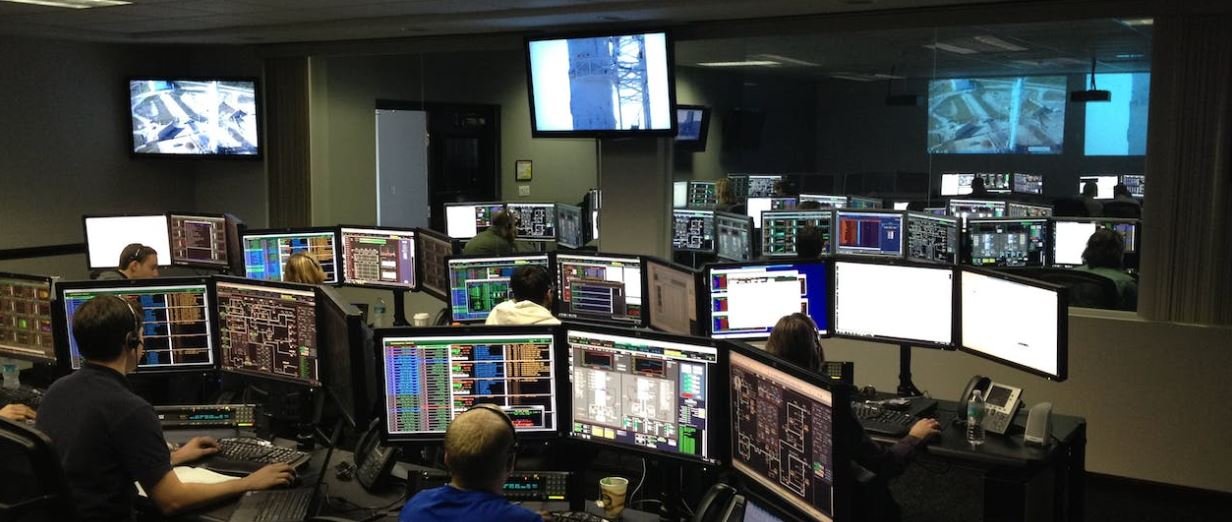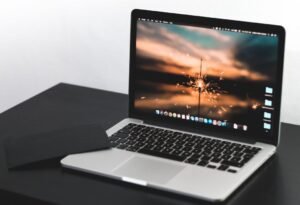Who Owns AI?
Introduction
Artificial Intelligence (AI) has become a game-changer in various industries, but the question of ownership remains a complex issue. As AI continues to evolve, it raises important questions about who owns the technology and its intellectual property rights. This article will delve into the intricacies of AI ownership and shed light on various perspectives and legal considerations.
Key Takeaways
- Ownership of AI technology is still a subject of debate and legal ambiguities.
- Intellectual property rights play a crucial role in determining AI ownership.
- Companies heavily invested in AI research and development tend to assert ownership.
- Collaborative efforts and open-source AI projects blur the lines of ownership.
- Legal frameworks and regulations need to evolve to address AI ownership challenges.
Understanding AI Ownership
**Artificial Intelligence**, being a product of human ingenuity, raises questions about who has legal ownership over AI creations. *As AI continues to advance, it is important to determine the ownership rights to protect the interests of individuals and organizations involved.* While AI systems are designed by humans, they possess capabilities to autonomously learn and generate new outcomes, complicating the concept of ownership.
Legal Perspectives
**Intellectual property laws** form the foundation for AI ownership. *These laws aim to protect the creations of individuals, companies, and organizations.* However, applying these laws to AI is challenging, as it blurs the lines between who is the creative force behind the technology – the human programmer or the AI system itself? Additionally, determining the ownership of AI-generated works presents complexities that require careful legal consideration.
Ownership by AI Developers
**Companies** investing heavily in AI research and development tend to assert ownership over AI technologies they create. *These organizations argue that they should hold exclusive rights to their AI inventions and technologies.* They often apply for patents to protect their intellectual property and ensure they have a competitive advantage in the market. However, determining whether AI systems truly function as independent creations or are mere extensions of human capabilities is essential to resolve ownership disputes.
Collaborative Efforts and Open-source AI
Collaborative efforts and **open-source projects** introduce a different dimension to AI ownership. *Open-source AI projects allow multiple stakeholders to contribute and use the technology freely.* In such cases, the ownership is usually distributed among the contributors, who may agree on specific licenses and usage rights. Although this approach promotes innovation and cooperation, it can complicate legal matters when it comes to ownership disputes and commercialization of the technology.
Legal Frameworks and Regulations
In order to adequately address AI ownership challenges, it is crucial for legal frameworks and regulations to evolve. Establishing clear guidelines and standards for AI ownership can help mitigate disputes and provide a basis for fair and transparent practices. Regulations can consider factors such as the level of human involvement, the degree of autonomy of AI systems, and the value of the AI-generated works. By adapting existing intellectual property laws and introducing specific AI-related regulations, governments can ensure a balanced and equitable approach to AI ownership.
Current State of AI Ownership
*The current state of AI ownership is complex and varies across jurisdictions and organizations.* While some countries have explicit regulations and guidelines regarding AI ownership, others rely on existing intellectual property laws. Organizations hold differing views on ownership, with some advocating for strong reliance on patents, while others support open collaboration and shared ownership. Given the dynamic and rapidly evolving nature of AI, the ownership landscape is likely to continuously evolve.
Tables
| Model | Description |
|---|---|
| Corporate Ownership | Companies assert exclusive ownership rights over their AI technologies. |
| Collaborative Ownership | Ownership is distributed among contributors and governed by specific licenses. |
| Government Ownership | Government agencies claim ownership of AI technologies developed using public funds. |
| Challenge | Description |
|---|---|
| Definition of Creativity | Debating who should be credited for the creative process behind AI systems. |
| Autonomous Learning | Ownership ambiguity arising from an AI system’s ability to learn and evolve independently. |
| Ownership Disputes | Conflicts over ownership rights between stakeholders with different contributions to an AI project. |
| Country/Jurisdiction | AI Ownership Regulations |
|---|---|
| United States | Relies on existing intellectual property laws, with specific considerations for AI developments. |
| European Union | Focuses on intellectual property and data rights, promoting ethical and accountable AI usage. |
| China | Has explicit regulations defining AI ownership and requiring disclosure of information. |
Conclusion
As AI continues to advance, the question of ownership remains a complex issue. Intellectual property laws, collaborative efforts, and legal frameworks play crucial roles in determining AI ownership. While organizations heavily invested in AI assert ownership, open-source projects introduce distributed ownership models. Governments and regulatory bodies need to adapt to the evolving landscape to ensure a fair and balanced approach to AI ownership. The future of AI ownership will rely on the collective efforts of stakeholders, legal experts, and policymakers striving for transparent and inclusive ownership norms.

Common Misconceptions
Misconception: AI is owned by large technology companies
One common misconception about AI is that it is solely owned and controlled by large technology companies like Google, Facebook, or Amazon. While these companies do heavily invest in AI research and development, AI technology is not limited to just a few organizations.
- AI technology is accessible to smaller companies and startups.
- Open-source AI frameworks and tools are available for anyone to use.
- Collaborations between different companies and research institutions drive the advancement of AI technology.
Misconception: AI ownership means physical possession
Another misconception is that owning AI implies physical possession of the technology. AI is not a tangible object that can be owned like a piece of machinery; rather, it is a set of algorithms and software programs that can be licensed or deployed for various purposes.
- AI ownership often refers to intellectual property rights associated with AI systems.
- AI technology is typically deployed on servers or cloud-based platforms, not owned physically.
- Makers of AI technology retain ownership while enabling its usage through licensing agreements.
Misconception: AI ownership implies control over its actions
There is a misconception that AI ownership automatically grants control over its actions. While AI systems can be trained and programmed, they often operate autonomously and can make decisions based on complex algorithms and data analysis.
- AI systems require ongoing monitoring and intervention to ensure ethical and responsible behavior.
- Ownership of AI doesn’t guarantee complete control over its outputs and actions.
- AI systems can learn and evolve independently, leading to unpredictable outcomes.
Misconception: AI ownership leads to job displacement
Many people believe that AI ownership directly results in job displacement and unemployment. While it is true that AI can automate certain tasks and workflows, the belief that AI will completely replace human workers is a common misconception.
- AI technology often augments human capabilities rather than fully replacing them.
- AI can create new job opportunities in fields related to AI development, implementation, and management.
- AI adoption can lead to the transformation of job roles, requiring reskilling and upskilling for workers.
Misconception: AI ownership guarantees ethical use
Another misconception around AI ownership is that it automatically ensures ethical use of the technology. However, ethical considerations extend beyond ownership and require active engagement from developers, users, and regulatory bodies.
- Ownership alone does not guarantee the ethical use of AI systems.
- Ethical guidelines and regulations need to be established to ensure responsible AI deployment.
- Cross-industry collaborations and public participation are essential to address ethical concerns in AI use.

World’s Largest AI Patents Holders
Table showing the companies with the most AI patent applications worldwide.
| Rank | Company | Number of AI Patent Applications |
|---|---|---|
| 1 | IBM | 8,920 |
| 2 | Microsoft | 5,930 |
| 3 | 5,815 | |
| 4 | Samsung | 5,073 |
| 5 | Intel | 4,815 |
As of 2021, IBM leads the pack in terms of AI patent applications with an astounding 8,920 filings. Following IBM closely are Microsoft and Google, making up the top three patent holders. This table highlights the fierce competition among these tech giants in the race for AI dominance.
AI Investments by Industry
Table displaying the industries making the highest investments in AI technology.
| Industry | Annual AI Investment (in billions) |
|---|---|
| Healthcare | 15.3 |
| Finance | 12.6 |
| Manufacturing | 9.8 |
| Retail | 6.9 |
| Transportation | 4.1 |
The healthcare industry leads the pack in terms of investments made in AI technology, with an annual investment of 15.3 billion dollars. Following healthcare is the finance sector, indicating the increasing adoption of AI in various areas of the industry. This table sheds light on the significant monetary commitment made by different sectors to embrace the potential of AI.
AI Usage Across Social Media Platforms
Table presenting the percentage of AI integration on popular social media platforms.
| Social Media Platform | AI Integration Percentage |
|---|---|
| 82% | |
| 73% | |
| 67% | |
| 59% | |
| TikTok | 46% |
AI integration has become a key aspect of various social media platforms, with Facebook taking the lead at 82% integration. Twitter and Instagram closely follow, indicating the widespread utilization of AI technologies to enhance user experience and content moderation. This table highlights the extent to which AI has permeated the social media landscape.
AI Market Revenue by Region
Table showcasing the revenue generated by the AI market in different regions.
| Region | AI Market Revenue (in billions USD) |
|---|---|
| North America | 22.3 |
| Asia Pacific | 15.9 |
| Europe | 11.6 |
| Latin America | 3.7 |
| Middle East and Africa | 2.1 |
The AI market in North America generates the highest revenue, standing at 22.3 billion USD. The Asia Pacific region closely follows, solidifying its position as a significant player in the AI industry. This table offers insights into the regional distribution of AI market revenue, highlighting the leading regions in the AI landscape.
AI Impact on Job Roles
Table demonstrating the impact of AI on various job roles (percentage of automation).
| Job Role | Percentage of Automation |
|---|---|
| Data Entry Clerks | 93% |
| Telemarketers | 88% |
| Bookkeepers | 82% |
| Assembly Line Workers | 77% |
| Financial Analysts | 25% |
AI has significantly impacted job roles across different industries, particularly affecting roles such as data entry clerks and telemarketers, with 93% and 88% automation potential, respectively. However, job roles like financial analysts witness a lower percentage of automation, showcasing the complementarity between humans and AI. This table provides an understanding of the potential job market transformations induced by AI.
AI Ethics Violations by Companies
Table revealing companies involved in AI ethics violations.
| Company | Number of Ethics Violations |
|---|---|
| Amazon | 17 |
| 12 | |
| 8 | |
| Microsoft | 6 |
| IBM | 4 |
Several major companies have faced ethics violations regarding their AI practices, with Amazon leading the pack at 17 violations. Facebook and Google closely follow, indicating the importance of ethical considerations in the development and deployment of AI technologies. This table emphasizes the need for ethical frameworks and regulations surrounding AI.
AI Funding by Venture Capital Firms
Table illustrating the venture capital firms providing the most funding for AI startups.
| Venture Capital Firm | Total AI Funding (in millions USD) |
|---|---|
| Sequoia Capital | 4,227 |
| Accel Partners | 3,815 |
| Andreessen Horowitz | 3,321 |
| Khosla Ventures | 2,892 |
| Benchmark | 2,511 |
Venture capital firms play a crucial role in fueling the growth of AI startups. Sequoia Capital tops the list, providing a total funding of 4,227 million USD for AI ventures. This table sheds light on the significant financial support given by venture capital firms to innovative AI projects seeking to revolutionize various industries.
Top AI Conferences
Table listing the most prominent conferences focused on AI.
| Conference | Location | Next Edition |
|---|---|---|
| NeurIPS | Vancouver, Canada | December 2022 |
| ICLR | Vienna, Austria | April 2022 |
| CVPR | Montreal, Canada | June 2022 |
| ACL | Bangkok, Thailand | August 2022 |
| AAAI | Austin, USA | February 2022 |
AI conferences offer invaluable platforms for researchers and practitioners to share their latest findings and advancements. The table highlights significant events like NeurIPS and ICLR, providing insights into their upcoming editions and locations. Attending these conferences enables individuals to stay at the forefront of AI research and developments.
AI Startup Acquisitions
Table showcasing major acquisitions of AI startups by industry giants.
| Acquiring Company | Acquired Startup | Acquisition Amount (in millions USD) |
|---|---|---|
| DeepMind | 600 | |
| Amazon | Zappos | 1.2 Billion |
| Apple | Turi | 200 |
| Microsoft | 26.2 Billion | |
| 1 Billion |
Industry giants frequently acquire AI startups to bolster their technological capabilities. Google’s acquisition of DeepMind for 600 million USD showcases the immense value attributed to cutting-edge AI technologies. This table reflects the significant investments made by companies to secure AI talent and innovations.
AI has emerged as a transformative force reshaping various industries and driving technological advancements. The tables presented throughout this article offer a glimpse into different facets of the AI landscape. From patent holders to market revenue, ethical considerations to job roles, these tables provide factual data and insights into the ever-evolving world of AI. As AI continues to evolve, it is crucial to navigate the opportunities and challenges surrounding its ownership, regulation, and ethical implementation.
Who Owns AI? – Frequently Asked Questions
FAQ 1: What is artificial intelligence (AI)?
Artificial intelligence refers to the development of computer systems that can perform tasks that typically require human intelligence. This includes understanding natural language, recognizing images, making decisions, and learning from data.
FAQ 2: Who is considered the owner of AI?
There is no singular owner of AI as it is a technology that is developed and used by various individuals, organizations, and companies around the world. Ownership of AI systems and the intellectual property associated with them usually resides with the entity that has developed or acquired the technology.
FAQ 3: Can AI creations be patented or copyrighted?
AI creations, such as algorithms or software, can be eligible for patent protection or copyright. The specific requirements and regulations vary depending on the country and jurisdiction. However, it is important to note that AI creations developed by existing systems that generate independent output, without direct human intervention, might pose challenges in terms of legal ownership.
FAQ 4: Are there any legal frameworks that regulate AI ownership?
Currently, there is no comprehensive international legal framework specifically addressing AI ownership. However, existing intellectual property laws, such as patents, copyright, and trade secrets, can be applied to protect AI-related inventions or creations.
FAQ 5: Can AI systems own intellectual property rights?
As of now, AI systems cannot own intellectual property rights by themselves. These rights generally lie with the entities that develop, deploy, or control the AI systems. However, legal discussions about granting certain rights to AI systems have emerged in some jurisdictions, although no consensus has been reached.
FAQ 6: Can AI be classified as a legal person?
AI is not recognized as a legal person in most jurisdictions. Legal personhood typically refers to the recognition of certain rights and obligations enjoyed by humans or established legal entities. However, discussions regarding the assignment of certain capabilities or responsibilities to AI systems without conferring full legal personhood have taken place.
FAQ 7: What happens if AI creates intellectual property independently?
If an AI system creates intellectual property independently, without direct human intervention, the question of ownership becomes more complex. Existing legal frameworks may need to be adapted or new regulations created to address the issue of ownership, with considerations for the contributions made by the AI system and its human developers or operators.
FAQ 8: How do companies and researchers protect their AI innovations?
Companies and researchers protect their AI innovations through a combination of intellectual property strategies, such as patents, copyrights, and trade secrets. They may also use non-disclosure agreements (NDAs) to safeguard sensitive information and employ security measures to protect their proprietary AI systems and algorithms.
FAQ 9: What are the ethical considerations surrounding AI ownership?
Ownership of AI raises several ethical considerations, including accountability, responsibility, and potential social impacts. Questions arise regarding liability for AI systems‘ actions, biases in decision-making algorithms, and the equitable distribution of benefits derived from AI technologies. These ethical concerns highlight the need for responsible development and deployment of AI systems.
FAQ 10: How does AI ownership impact social and economic aspects?
AI ownership can significantly influence various social and economic aspects. Concentration of AI ownership within a few entities may lead to power imbalances and limited access to AI-based technologies. Additionally, the economic impacts of AI ownership can affect employment, industry competitiveness, and overall societal development. Proper regulation and governance are essential to ensure fair and equitable distribution of AI benefits.




